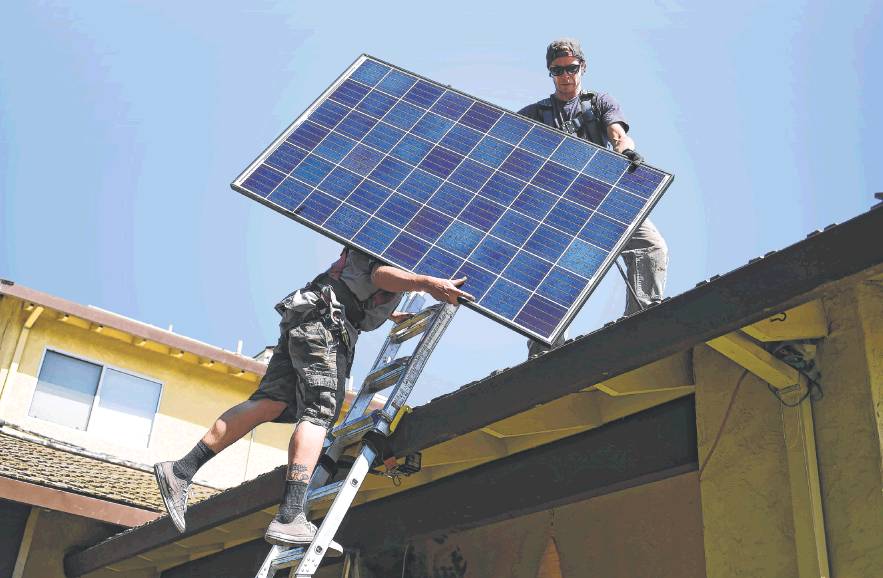RENEWABLE ENERGY
Another solar option
Sunrun, a California company that features rooftop panels, is the latest to make a run at the Texas market
By Ryan Maye HandySUNRUN, the largest independent rooftop solar company in the United States, says it will enter Texas seeking to take advantage of a state with plenty of sunshine and grab a share of a largely untapped market.
Residential solar power in Texas has been slow to catch on, hampered by a lack of policies that other states have used to encourage the growth of the industry. Texas offers no state incentives and has no net metering law, which requires utilities to buy back excess power produced by residential systems.
But plunging solar panel prices have made rooftop solar more attractive for Texans, as have retail electricity companies that offer rebates or bill credits for residential solar power producers.
Sunrun, based in California, is just the latest company to enter a market seen by the solar industry as having great potential for growth. It follows another California company, SolarCity, and homegrown firms, such as Sunnova of Houston.
Sunrun will offer solar panel systems for lease or purchase in Texas, as well as offer financing. In a partnership with Think Energy, a retail electric company, Sunrun also will offer credits toward customers’ bills in exchange for extra electricity generated.
As a part of the plan, rates for solar energy will be locked in for 20 years and retail power rates will be locked in for five, said Michael Grasso, the company’s chief marketing oficer. The idea is to ofler a simpler way to buy electricity in Texas’ crowded and often confusing retail electricity market.
“Texas is the largest and most competitive electricity market in the U.S.,” Grasso said. “Most Texans have literally hundreds of energy plans to choose from that are oflered through dozens of companies, with no one having a simple, locked-in rate for the long term.”
Nationally, solar power had a banner year in 2016. Texas ranked among the top 10 states in installed solar capacity, but solar still accounts for a tiny share of the state’s electricity production. Solar accounted for about 1,200 megawatts of the generating capacity in Texas, compared with more than 20,000 megawatts for wind.
In the U.S., utility-scale solar increased an average of more than 70 percent a year between 2010 and 2016 to about 21,500 megawatts, with about half of that capacity coming online in the last two years. (That’s compared with around 82,000 megawatts of installed capacity in the U.S., according to a February report from the American Wind Energy Association.)
The expansion of utility-scale solar projects — greater than one megawatt, or enough to power 200 homes on a hot Texas day —has driven most of the national and local gains in solar power capacity.
In Texas, rooftop solar has been slow to grow outside of cities like Austin, which oflers net metering and financial incentives for solar users. But ownership of rooftop solar has become more attractive as solar panel prices have fallen. Most homeowners pay between $2.87 and $3.85 per watt to install a solar panel, about $2 less per watt than four years ago.
An average-sized solar system costs between $10,000 and $13,400, after tax credits, according to energy website energysage.com.
In Houston, MP2 Energy has partnered with SolarCity to offer a bill credit based on a homeowner’s electricity plan. Green Mountain Energy, a retail electric company, also oflers a bill credit for extra energy generated.
An average customer generating 433 kilowatt-hours of excess energy would get a credit of $44.52 a month, according to Green Mountain.

